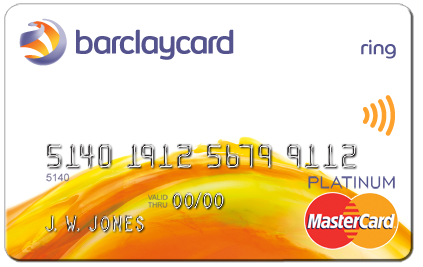I try to avoid eating food that “may or may not” contain some ingredient, especially if it’s not even clear what that ingredient is (milk product?). Barclay’s new Ring credit card, I’m afraid, looks tremendously tasty and innovative, but while poking through their Terms of Service over lunch just now, proved themselves no better than a Twinkie. In fact, far worse, because Twinkies don’t pretend to be healthy.
 Barclay’s pitches the Ring credit card as “crowdsourced” and “community powered.” They’re keeping it “simple” and touting unprecedented candor: “For the first time ever, we’re going to give you a look at our profit and loss statement, which shows you how we make money from Barclaycard Ring. And with Giveback™, you’ll even get to keep some of the profits for yourself.” This is cool stuff! If they would actually share their (card’s) P&L statement, it would be a historic first. I love the idea of being a customer and an owner, and if they do it right, I might actually choose features or economics that aren’t strictly in my myopic self-interest.
Barclay’s pitches the Ring credit card as “crowdsourced” and “community powered.” They’re keeping it “simple” and touting unprecedented candor: “For the first time ever, we’re going to give you a look at our profit and loss statement, which shows you how we make money from Barclaycard Ring. And with Giveback™, you’ll even get to keep some of the profits for yourself.” This is cool stuff! If they would actually share their (card’s) P&L statement, it would be a historic first. I love the idea of being a customer and an owner, and if they do it right, I might actually choose features or economics that aren’t strictly in my myopic self-interest.
They keep their promise with low, flat rates, a clear fee schedule, even beyond the basic Schumer box requirements. The Terms of Service is easily accessible, plain English, short and to the point. But reading past the fee schedules and basic disclosures, comes my tremendous disappointment:
This profit sharing feature is not based on the actual profits of the program. Instead, the Giveback™ program contains a transparent calculation that is used to determine what will be shared with the community members and which may or may not approximate actual profits. The Giveback™ program and the profit sharing features are offered at our sole discretion. We may discontinue the program at anytime.
They will “transparently” disclose what amounts to a deceitful claim. They will not share their P&L. They may give something back, but it may or may not approximate actual profits. It could be a lot less than your garden variety non-social, non-transparent credit card. They may, in fact, give nothing back, at their discretion. But the fact they promote this as the vanguard of transparency, the epitome of modern, youth oriented social media savvy strikes me as incredibly cynical.
Why not actually disclose the P&L, even if just for a particular product? Why not actually share a portion of the profits that could amount to more than the perfunctory “2% cash back”? Why not actually open source functionality? Why not actually use our social media networks to strengthen our financial agreements? Why fake it, Barclays?